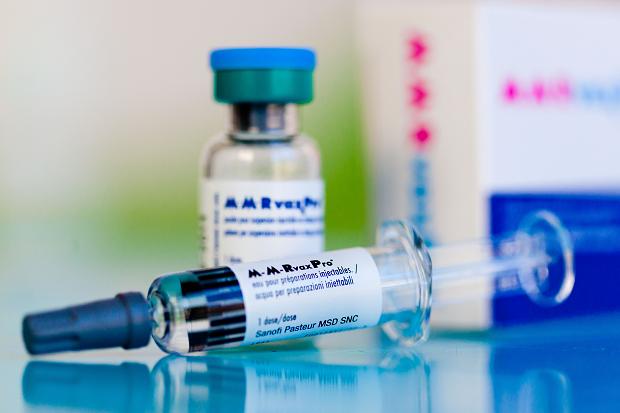Rubella or German measles, if caught during pregnancy, can cause serious damage to your unborn child. So, before your pregnancy it is of utmost importance that you get a blood test done to find out if you are immune to rubella or not. If not, then do get yourself immunized before conception.
The Rubella Virus
Rubella is an infection that is caused by the rubella virus. It is a short-lived infectious disease of childhood. It causes rashes with a low degree of fever, swollen glands and sore throat. These symptoms begin to show usually about 12 to 23 days after you have been exposed to the illness. The rashes can be preceded by reddened eyes and a runny nose for 1 to 5 days.
Children are usually immunized against it through the MMR (measles, mumps, rubella) vaccine. Although it usually affects children, it can affect adults too. German measles, however, is not the same as the regular measles or rubeola. Also having immunity from one illness will not protect you from the other.
Precautions before Conception
Do a blood test before you become pregnant. The blood test checks for antibodies in your blood to know whether you are immune to the disease or not. If the test result shows positive for the antibodies it means that you are immune.
There could be a situation when you have received the Rubella vaccine as a child. Despite this it is best to do a check up before conception because at times, despite the vaccination the adult body does not have enough antibodies to protect against rubella.
It is best to do the precautionary check before you are pregnant. This is because once you have conceived this vaccine cannot be given as it contains live virus.
Do wait for at least 28 days after the vaccine before you conceive. However if you do conceive before this time period, the chances that it would harm your baby is quite low. It is best to remain cautious though.
Also once you give birth, be sure to get vaccinated so that it won’t be a cause of concern during your next pregnancy. You can get a vaccination while you are breastfeeding.
Contacting Rubella during Pregnancy
This illness is a highly contagious one. The patient remains contagious for the entire period starting from one week before the rash and till a week after all the rashes disappear.
If you come in contact with someone who has Rubella during pregnancy, then immediately check whether you are immune to it or not. You will most likely have another blood test in two to four weeks time.
If the test results show that you are not immune then your doctor might refer you to a maternal-fetal medicine specialist to discuss the possibility of your baby having congenital rubella syndrome. He will tell you about the risks to your unborn baby and you will have to decide whether to terminate your pregnancy or not .
If you choose not to terminate your pregnancy then you might be given a shot of immune globulin to try and reduce the chances of your baby developing any defects. It will not, however, prevent your baby from becoming infected.
As yet, there is no effective treatment to prevent the development of congenital rubella syndrome or CRS.
The Maximum Risk Period
The risks of your baby developing Rubella while in the womb are most in the first sixteen weeks of your pregnancy. And it significantly reduces after the twentieth week of pregnancy.
Effects of Rubella during Pregnancy
The rubella virus is one which can cross the placenta and affect the child in the womb. If you develop this illness during the first few months of your pregnancy then it can seriously harm your child. This is called the congenital rubella syndrome. It can lead to disabilities like cataracts, deafness and even different lung and brain abnormalities when the child is born. Having rubella in the first trimester can also lead to a miscarriage.
So please do remember to immunize yourself the moment you begin planning your pregnancy. In fact, most doctors will test you for it at your first prenatal visit itself. Also do keep in mind that that there are other reasons why could have developed rash during pregnancy. So it is best to immediately report to your doctor.






